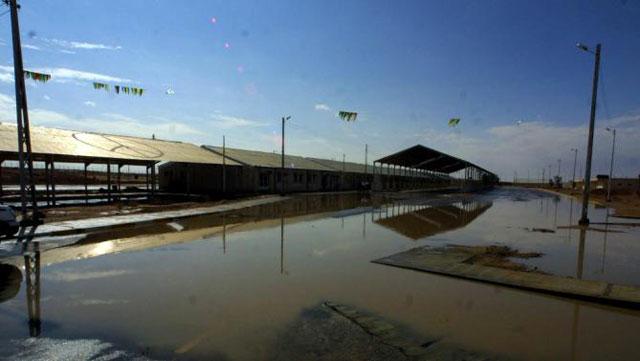You are here
Saudi Arabia says attackers behind Shiite killings linked to IS
By AFP - Nov 24,2014 - Last updated at Nov 24,2014
RIYADH — Saudi Arabia said Monday the assailants behind Shiite killings earlier this month are linked to the Islamic State (IS) jihadist group, including many jailed previously over suspected extremist ties.
The interior ministry said it had broken up the "criminal network" behind the attack in Eastern Province, adding that the group's "head had links with Daesh", the Arabic name for IS.
Gunmen killed seven Shiites, including children, in the eastern town of Al Dalwa on November 3 during the commemoration of Ashura, one of the holiest occasions of their faith.
Four men carried out the attack after killing a man from a neighbouring village and stealing his car to use it in the Al Dalwa shootings, the interior ministry said.
Security forces had since arrested 73 Saudis and four foreigners "linked" to the attack, it said in a statement carried by SPA state news agency.
The ministry said that three of the four assailants had served jail terms over links to the "deviant group”, a term usually used to refer to Al Qaeda.
In total, 32 of those arrested had been previously jailed.
Security forces seized during raids documents and electronic equipment that "revealed contact between this terrorist organisation and Daesh abroad”, the ministry said.
'Target has shifted'
Although Sunni extremists attacked Westerners and government targets in the kingdom between 2003 and 2006, there had not been a major militant assault against Shiites before this month's shootings.
The killings followed the declaration of a "caliphate" in parts of Iraq and Syria by the IS group, which considers Shiites heretics.
Saudi Arabia and its Sunni Gulf neighbours have joined a US-led military coalition bombing IS in Syria, raising concerns about possible retaliation in the kingdom.
The Al Dalwa attack "shows that Sunni extremists have shifted their target set beyond the regime toward Shiites — perhaps in a bid to provoke civil strife”, said Frederic Wehrey, a Gulf expert at the US-based Carnegie Endowment for International Peace.
Most of Saudi Arabia's minority Shiites live in the east, where the vast majority of the kingdom's oil reserves lie but where Shiites have long complained of marginalisation.
Since 2011, protests and sporadic attacks on security forces have occurred in Shiite areas, leaving about 20 Shiite youth dead.
The Al Dalwa killings led to expressions of solidarity and widespread condemnation by Saudi Arabia's Sunni leaders, which analysts have said could help to bridge the divide with Shiites.
Along with expressions of sympathy and the security dragnet, authorities have taken further steps since the killings.
Culture and Information Minister Abdulaziz Khoja was dismissed. The reasons for his firing were unclear but it followed Shiite calls for action against hate speech in the media.
The deputy governor of Eastern Province was also transferred out of the region, without explanation.
At a Cabinet meeting on Monday, ministers approved the establishment of a supreme body, led by the governor and with its own budget, for development of the eastern region and providing it with public facilities and services, SPA said.
Related Articles
Saudi authorities blamed militants linked to Al Qaeda, and a Cabinet minister was sacked Wednesday, after an unprecedented attack that killed Shiite worshippers and highlighted sectarian tensions in the Sunni-dominated kingdom.
Three Saudi guards including a top commander were killed on Monday in a rare attack and suicide bombing by "terrorists" on the kingdom's border with Iraq, the interior ministry said.
RIYADH — They are angry and grief-stricken, but Saudi Arabia's minority Shiites refused on Sunday to be provoked by a deadly mosque bombing















